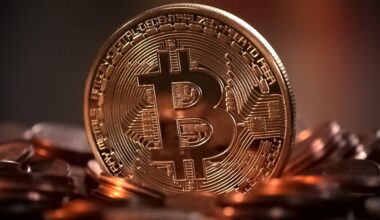The Effect of Economic Fluctuations on Luxury Goods Consumption
Economic fluctuations can significantly affect consumer behavior, particularly regarding luxury goods consumption. As economies shift from growth to recession and back again, the spending patterns of consumers undergo noticeable changes. During periods of economic downturn, luxury brands often experience a drop in sales as consumers become more cautious with their expenditures. This cautiousness stems from feelings of insecurity regarding job stability, income levels, and overall financial health. When the economy flourishes, luxury goods tend to witness a surge in consumption as people feel more confident in their financial situations. Factors such as increasing disposable income and rising consumer confidence create a favorable environment for luxury spending. Furthermore, during economic ups, consumers often indulge in luxury goods not only as a status symbol but also as a reward for their hard work. Luxury brands often respond to these fluctuations through strategic marketing adjustments and pricing tactics aimed at maintaining their appeal to both affluent and middle-class consumers. Understanding these dynamics allows luxury retailers to adapt more effectively to various economic climates, ensuring consistent engagement and sales performance despite broader economic changes.
Consumer sentiment regarding luxury goods evolves over time, especially during economic changes. Many consumers reassess their priorities and spending habits during financial uncertainty. In turn, this reassessment influences luxury brands to focus on value propositions and emotional connections with their offerings. To maintain relevance, luxury brands craft narratives that resonate with consumers, emphasizing quality, exclusivity, and craftsmanship. For instance, brands often highlight sustainable practices amid increasing interest in ethical consumerism, thus reflecting societal values. During prosperous times, consumers are more likely to indulge in high-end purchases as a form of self-gratification. On the other hand, in economic downturns, brands can implement strategies to reassure consumers of their investment’s value. Luxury retailers can also explore alternative markets, including the experienced or lifestyle-oriented sectors that maintain a stronger resilience against economic fluctuations. Digital marketing plays a vital role in reaching consumers during these periods. With the rise of online shopping, brands must adapt their marketing strategies to cater to changing consumer behaviors effectively. Successful adaptation can maintain engagement and loyalty, ensuring that luxury brands remain top-of-mind regardless of shifting consumer preferences.
Consumer behavior toward luxury goods often reflects broader societal and economic trends. As consumers experience varying economic conditions, their perspectives on luxury goods shift dramatically. During prosperous economic periods, consumers generally exhibit a propensity to spend more freely on luxury items, often driven by increased disposable income and elevated confidence in financial stability. In contrast, during economic downturns, consumers frequently prioritize essential spending over discretionary purchases, leading to a decline in luxury goods consumption. This behavioral shift incorporates significant emotional elements, as luxury purchases often serve as indicators of success or status. Brands must proactively address this pressure to sustain sales levels. Effective luxury marketing campaigns gain resilience by tapping into consumers’ emotional ties to products, rather than depending solely on high price tags. Luxury brands can survive downturns by showcasing their products as pieces of artistry or heritage. This positioning helps to maintain demand despite economic pressures. Additionally, brands can benefit from diversifying their product lines to be more accessible during challenging financial times. By offering lower-priced collections that still convey luxury, brands can appeal to a broader audience while preserving their exclusive image during economic fluctuations.
Emotional Connection to Luxury Goods
In periods of economic renewal, consumers are generally more prone to make luxury purchases, viewing them as rewards for their achievements. This attitude showcases a fundamental connection between consumer identity and luxury goods. Many individuals perceive luxury items as integral to their image, reinforcing their social status within their communities. Conversely, during economic struggles, this emotional connection may falter, compelling consumers to re-evaluate their purchasing decisions. Luxury brands must satisfactorily meet consumers’ emotional needs throughout various economic climates. To effectively engage consumers during difficult times, brands can emphasize impeccable craftsmanship and brand heritage in their marketing strategies. A deep understanding of consumer psychology enables luxury brands to craft resonant messages that validate customers’ choices. Furthermore, storytelling becomes a powerful tool; effective narratives that convey a brand’s authenticity resonate with consumers, fostering deeper bonds. Brands that invest in building relationships with their customers are more likely to endure through economic turbulence. By reinforcing the perceived value of luxury purchases as emotional and personal experiences, brands can bridge the gap created by economic fluctuations. A focus on emotional storytelling can help brands maintain their allure and engagement despite shifting consumer behavior.
The global market’s interconnectivity further influences consumer behavior regarding luxury goods during economic changes. Events occurring in one part of the world often ripple through to others, impacting consumer sentiment and purchasing power. For example, economic crises in major markets can lead to a decline in luxury consumption worldwide, irrespective of individual economies’ conditions. Brands operating at a global scale must remain vigilant and attuned to these interconnected dynamics. Additionally, luxury brands must navigate different cultural perceptions and buying behaviors influenced by local economic climates. Adapting marketing strategies to cater to diverse audiences can create opportunities for growth, allowing brands to capitalize on demand where it exists. For instance, appealing to emerging markets can mitigate losses in established ones during downturns. The influx of tech-savvy consumers in regions like Asia increases the potential for luxury brands to thrive even amidst economic fluctuations. Additionally, online platforms enable brands to reach broader audiences with new digital marketing strategies, making them more resilient against economic challenges. Through adaptability and a keen understanding of market trends, luxury brands can harness opportunities even amidst economic volatility.
The Role of Digital Marketing
In today’s digital landscape, online presence significantly influences luxury goods consumption patterns during economic fluctuations. Brands that adeptly leverage digital marketing possess the tools necessary to engage consumers effectively across various platforms. Social media, in particular, allows luxury brands to connect with consumers on a personal level, fostering loyalty and community. This relationship plays an essential role during both prosperous and challenging economic times, as a brand’s perceived authenticity contributes to consumer trust. Additionally, online marketing strategies can encourage impulse purchases by creating a sense of urgency through limited-time offers and exclusive online collections. They also provide valuable insights into consumer preferences, enabling brands to create targeted marketing campaigns. Engaging content can inspire consumers to consider luxury items even during downturns, by evoking aspirational messaging that transcends transactional relationships. While traditional marketing approaches remain relevant, incorporating digital channels improves brands’ adaptability to economic changes. Providing an interactive shopping experience and personalized recommendations can enhance consumer loyalty. Thus, a stronger focus on digital marketing can create opportunities for luxury brands to thrive, even in uncertain economic environments, ultimately preserving their relevance and market share.
In conclusion, economic fluctuations present both challenges and opportunities for luxury goods consumption. The varying attitudes of consumers towards luxury items during these periods illustrate the complex relationship between economic conditions and consumer behavior. Brands that remain adaptable and responsive to changing market dynamics are more likely to navigate these fluctuations successfully. Strategies that focus on emotional storytelling, digital marketing, and market diversification can create valuable connections with consumers. By reinforcing their brand heritage and authenticity, luxury retailers enhance their appeal regardless of whether consumers are splurging during economic booms or cutting back during downturns. Developing strong customer relationships becomes increasingly vital in maintaining loyalty and engagement in fluctuating markets. Ultimately, understanding the nuanced ways economic changes influence consumer behavior sets the foundation for luxury brands to thrive. As they adapt to evolving consumer perspectives and capitalize on emerging trends, luxury retailers can ensure their position remains strong amid unpredictable economic landscapes. The continuous adaptation to consumer sentiment not only fosters sustainable sales but also fortifies brand loyalty, ensuring long-term success regardless of external economic pressures.
In conclusion, economic fluctuations present both challenges and opportunities for luxury goods consumption. The varying attitudes of consumers towards luxury items during these periods illustrate the complex relationship between economic conditions and consumer behavior. Brands that remain adaptable and responsive to changing market dynamics are more likely to navigate these fluctuations successfully. Strategies that focus on emotional storytelling, digital marketing, and market diversification can create valuable connections with consumers. By reinforcing their brand heritage and authenticity, luxury retailers enhance their appeal regardless of whether consumers are splurging during economic booms or cutting back during downturns. Developing strong customer relationships becomes increasingly vital in maintaining loyalty and engagement in fluctuating markets. Ultimately, understanding the nuanced ways economic changes influence consumer behavior sets the foundation for luxury brands to thrive. As they adapt to evolving consumer perspectives and capitalize on emerging trends, luxury retailers can ensure their position remains strong amid unpredictable economic landscapes. The continuous adaptation to consumer sentiment not only fosters sustainable sales but also fortifies brand loyalty, ensuring long-term success regardless of external economic pressures.


